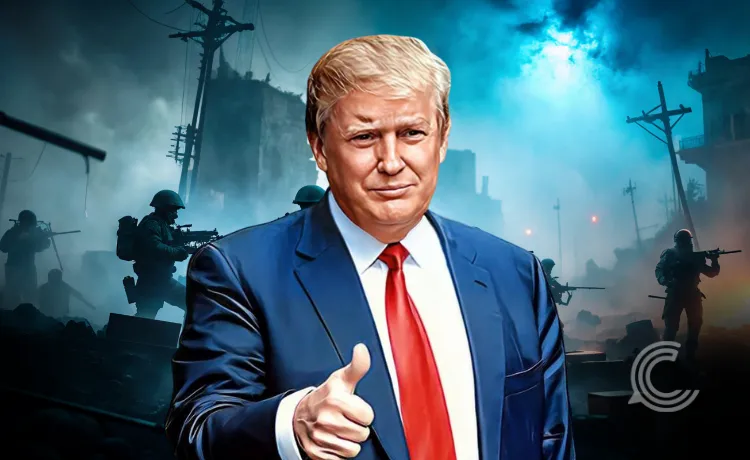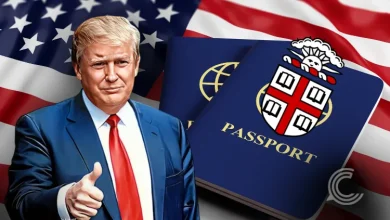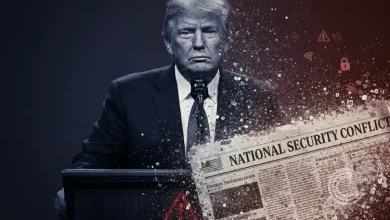US Lethal Strike on Venezuela Boat Kills Six, Trump Defends

Key Highlights–
- U.S. carries out airstrike on a Venezuelan-linked vessel, killing six, claimed as part of counter-narcotics operations
- Trump asserts the strike was legal under his Commander-in-Chief authority; critics dispute the legality
- This is the fifth such strike in recent weeks, raising questions about executive power and international law
President Donald Trump announced on Tuesday that U.S. forces conducted another lethal airstrike on a vessel off the Venezuelan coast, accusing it of involvement in drug trafficking. According to Trump’s social media statement, six individuals aboard the boat were killed, and no U.S. personnel were harmed.
U.S. Strike Kills Six in Venezuelan Waters
“Under my Standing Authorities as Commander-in-Chief, this morning … the Secretary of War ordered a lethal kinetic strike on a vessel affiliated with a Designated Terrorist Organization (DTO),” Trump wrote. He added that the strike occurred in international waters, and described the deceased as “male narcoterrorists.”
He released an unclassified video purportedly showing a small boat, seemingly motionless, being struck by a missile. However, he did not present independent verification or proof that the vessel was engaged in narcotics trafficking.
As reported by Reuters, this operation marks at least the fifth U.S. strike on suspected drug boats in the Caribbean in the past weeks.
Pattern of Lethal Strikes & Rising Death Toll
Since early September, the Trump administration has carried out multiple deadly strikes on vessels in southern Caribbean waters. The first known strike on September 2 killed 11 people. Subsequent announced attacks on September 15, 19, and October 3 reportedly claimed three and four lives respectively.
With this latest incident, the known cumulative death toll from these operations rises to 27.
Analysts note discrepancies in counts and ambiguity about the identities and affiliations of those killed. A recent Reuters investigation observed confusion in official tallies, with different U.S. sources citing different numbers of strikes and fatalities.
Executive Power, Legal Controversies & Labeling Cartels
Trump and his administration defend the strikes as efforts to disrupt “narco-terrorists” before their illicit cargo reaches U.S. shores. Yet critics and legal experts have raised concerns over the legality of using lethal force against suspected traffickers, especially when they have not been proven to be armed belligerents.
The administration has recast certain drug trafficking networks as “unlawful combatants” and has argued that the U.S. is engaged in a “non-international armed conflict” with cartels, thereby claiming justification for military action abroad.
In early October, a Trump administration memo to Congress stated that the president had determined the ongoing campaign against cartels falls under this armed conflict paradigm.
That said, critics argue that drug trafficking alone does not meet the thresholds required under international humanitarian law to justify lethal strikes, particularly in international waters without clear self-defense claims. The lack of transparency in the presented evidence and the lack of congressional oversight exacerbate these concerns.
U.S. Military Buildup & Regional Tensions
The strikes occur alongside an expanded U.S. military presence in the southern Caribbean, including deployments to Puerto Rico and increased naval, air, and submarine assets.
Venezuela’s President Nicolás Maduro has denounced the strikes, characterizing them as acts of aggression and attempts at destabilization. The Venezuelan government denies involvement in narcotrafficking and challenges the legitimacy of U.S. claims.
Trump, in turn, has repeated allegations that Venezuela is permitting gangs like Tren de Aragua to operate and sending criminals into the U.S. He framed the strikes as part of an effort to protect Americans.
Also Read | China’s Retaliatory Port Fees Target US Linked Vessels
Domestically, some Senators have pushed back. A bipartisan resolution seeking to require congressional approval for future strikes on drug-trafficking vessels narrowly failed in the Senate, as reported by theThe Washington Post
Risks & Implications
The campaign of lethal strikes may provoke conflict with Venezuela or other nations if operations are seen as violations of sovereignty or maritime law. Furthermore, if sustained, these actions could reset international norms on the use of force in counter-narcotics contexts.
Calls are rising for clearer evidence, independent investigations, and alignment with international law. Pressure may grow for legislative checks on executive military power in drug war operations abroad.



